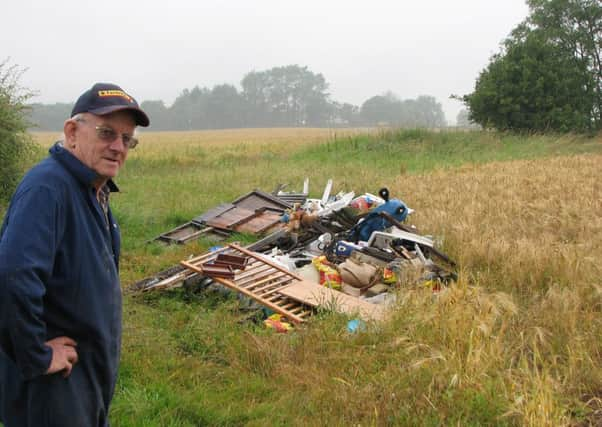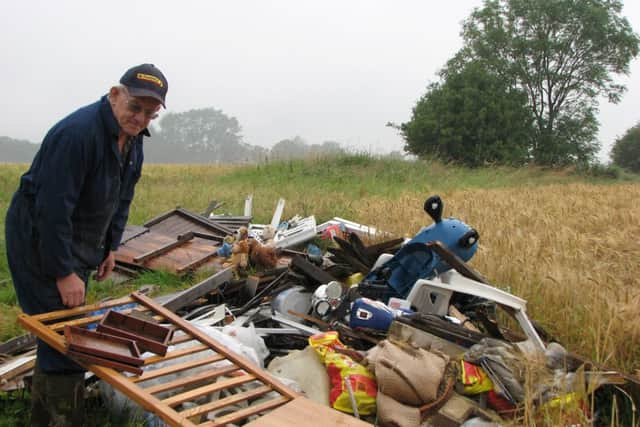Tougher stance needed to protect the countryside


COUNCILS must increase efforts to deter and penalise fly-tippers, the body representing landowners and rural businesses has warned, as it backed the call from an influential group of MPs for a tougher stance on the issue.
Fly-tipping costs rural businesses £150m a year, the Country Land and Business Association (CLA).
Advertisement
Hide AdAdvertisement
Hide AdIt wants local authorities to do more to tackle the issue after a report by the Communities and Local Government Select Committee, published on Saturday, revealed that levels of fly-tipping increased by 20 per cent in the last year.


The MPs set out a number of recommendations, including introducing new fixed penalty notices for people who dump household items and other measures to deal with littering, including using taxes earned for tobacco sales to meet the cost of clearing up cigarette litter and the introduction of laws that force businesses to keep the outside of their premises free from rubbish.
CLA North regional director Dorothy Fairburn said: “Waste regularly blights the countryside and fly-tipping is a serious issue for rural landowners. On average it costs £800 to clear up each incidence of non-toxic fly-tipped waste on private land, and it costs the rural business sector up to £150 million in clean up costs every year. The CLA has called for culprits to be dealt with more robustly for years.
“We welcome the committee’s recognition that there is a need for local councils to increase their efforts to deter fly-tipping and to penalise the culprits.”
Advertisement
Hide AdAdvertisement
Hide AdMiss Fairburn said she supported more power for enforcement authorities to tackle fly-tipping but wanted to see revision of the responsibility of individuals to clear away fly-tipped waste on their property.
She said: “Owners of land or property are still liable for any waste that is fly-tipped on their land and can be prosecuted if they do not clear it away.
“The CLA has put forward proposals for changes to the law which would provide better protection for private property owners who become victims of fly tipping through no fault of their own.”
Tougher action on culprits is a measure supported by Stokesley farmer Robert Campbell.
Advertisement
Hide AdAdvertisement
Hide AdHe has noticed a marked increase in fly-tipping on his 1,000 acre farm in recent years, and has introduced physical barriers to stop people getting access to his land to dump waste.
The problem for him is two-pronged - clearing up hundreds of smaller pieces of litter that are dropped routinely from car windows and end up in his grass verges and hedges, and larger items like tyres and even sofas that are dumped on his land. He thinks a cultural change is needed.
“We need to educate people,” he said.
“If you think of how smoking has become anti-social, the same needs to be done here. People must understand that if they want a beautiful countryside they have to stop.”